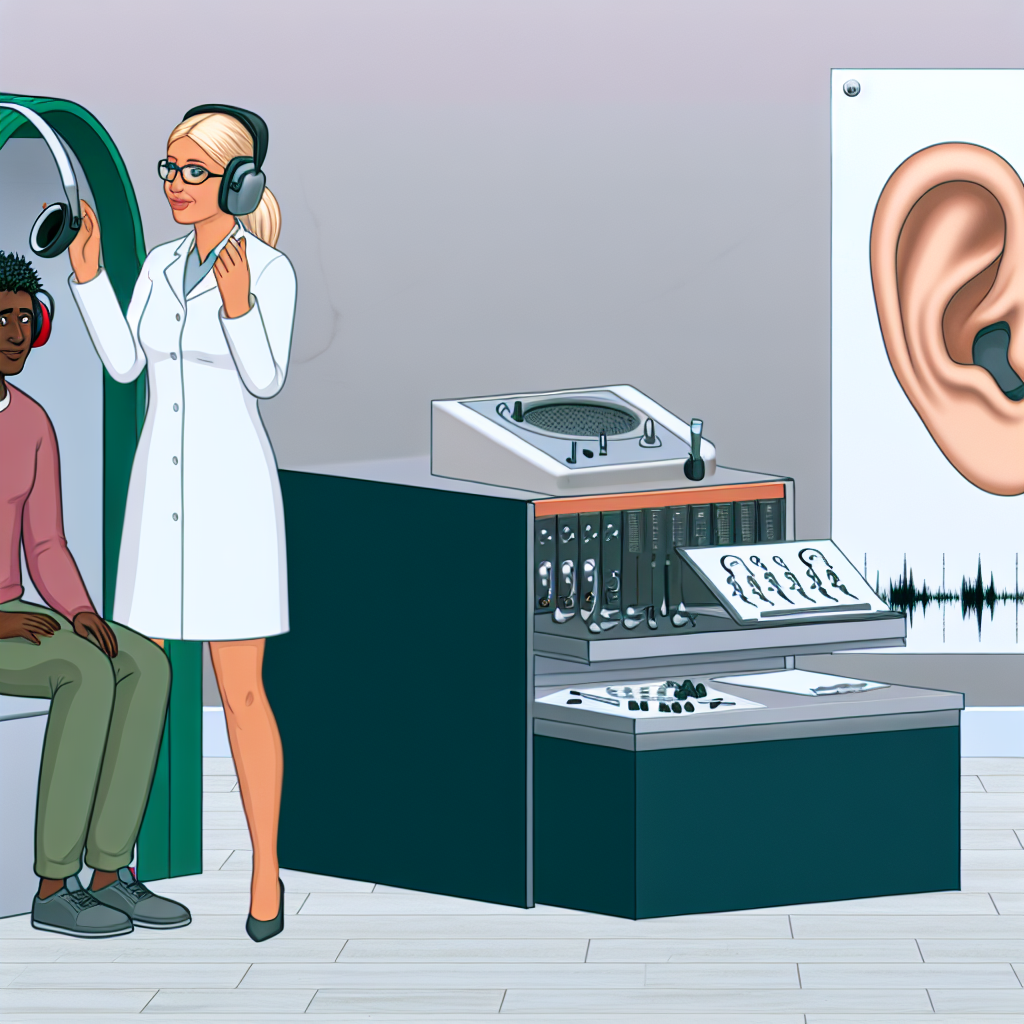
Hearing loss affects millions of Americans, and early detection is crucial for maintaining quality of life and communication abilities. Understanding which hearing tests are most effective can help you make informed decisions about your auditory health and seek appropriate treatment when necessary.
Understanding Different Types of Hearing Tests
When it comes to diagnosing hearing loss, healthcare professionals utilize various testing methods to assess different aspects of your auditory system. Each test provides unique insights into your hearing capabilities and helps identify specific types of hearing impairments.
Pure Tone Audiometry: The Gold Standard
Pure tone audiometry is widely considered the most comprehensive and reliable test for detecting hearing loss. This standardized test measures your ability to hear sounds at different frequencies and volumes, providing a detailed picture of your hearing thresholds.
During this test, you’ll wear headphones and listen to a series of tones at various pitches and volumes. The results are plotted on an audiogram, which shows the softest sounds you can hear at different frequencies. This information helps audiologists determine:
- The degree of hearing loss (mild, moderate, severe, or profound)
- The type of hearing loss (conductive, sensorineural, or mixed)
- Which frequencies are most affected
- Whether hearing loss affects one or both ears
Comprehensive Hearing Evaluation Components
A thorough hearing assessment typically includes multiple tests to provide a complete picture of your auditory health. Professional hearing testing facilities often combine several diagnostic methods for the most accurate results.
Essential Tests in a Complete Hearing Evaluation
- Otoscopy: Visual examination of the ear canal and eardrum
- Tympanometry: Tests eardrum movement and middle ear function
- Pure tone audiometry: Measures hearing sensitivity across frequencies
- Speech audiometry: Evaluates ability to understand spoken words
- Bone conduction testing: Determines if hearing loss is conductive or sensorineural
When to Seek Professional Hearing Testing
Recognizing the signs of potential hearing loss is important for maintaining your auditory health. You should consider professional evaluation if you experience:
- Difficulty understanding conversations, especially in noisy environments
- Frequently asking others to repeat themselves
- Turning up the volume on television or radio
- Ringing or buzzing in your ears (tinnitus)
- Feeling like others are mumbling
- Avoiding social situations due to communication difficulties
Advanced Diagnostic Options
For complex cases or specific conditions, audiologists may recommend additional specialized tests. These advanced evaluations can provide deeper insights into your hearing health and help develop targeted treatment plans.
Specialized Hearing Tests
Auditory brainstem response (ABR) testing measures how your auditory nerve and brainstem respond to sound stimuli. This test is particularly useful for:
- Infants and young children who cannot participate in traditional testing
- Detecting retrocochlear hearing disorders
- Evaluating hearing in patients with developmental disabilities
Otoacoustic emissions (OAE) testing measures sounds produced by the inner ear in response to stimulation, helping identify cochlear dysfunction even before symptoms appear.
CalHearing Services: Comprehensive Auditory Care
At CalHearing, we provide a full range of services to address all aspects of hearing health. Our experienced audiologists utilize state-of-the-art equipment and evidence-based practices to deliver exceptional care to patients throughout our service areas.
Our Comprehensive Service Offerings Include:
- Professional Hearing Evaluations: Complete hearing testing using advanced diagnostic equipment
- Hearing Aid Services: Expert hearing aid fitting and customization
- Tinnitus Management: Specialized tinnitus therapy programs
- Hearing Protection: Custom hearing protection solutions
- Device Maintenance: Professional hearing aid repairs and maintenance
We proudly serve communities across California, providing accessible hearing healthcare to diverse populations. Learn more about the areas we serve and find convenient locations near you.
Preparing for Your Hearing Test
To ensure accurate results from your hearing evaluation, proper preparation is essential. Here are important steps to take before your appointment:
- Clean your ears gently, avoiding cotton swabs that might push wax deeper
- Avoid exposure to loud noises for 24 hours before testing
- Bring a list of current medications and medical history
- Write down specific hearing concerns or symptoms you’ve noticed
- Arrange for someone to accompany you if you have severe hearing difficulties
Understanding Your Test Results
After completing your hearing assessment, your audiologist will explain the results and discuss treatment options if hearing loss is detected. The audiogram provides valuable information about your hearing thresholds and helps determine the most appropriate interventions.
Results may indicate:
- Normal hearing sensitivity across all frequencies
- Mild to moderate hearing loss requiring hearing aids
- Severe hearing loss needing advanced amplification solutions
- Asymmetrical hearing loss requiring further medical evaluation
Treatment Options and Next Steps
Based on your hearing test results, various treatment options may be recommended. Modern hearing healthcare offers numerous solutions to address different types and degrees of hearing loss.
For comprehensive information about hearing health topics and treatment options, explore our resources section and stay updated with the latest developments through our blog.
Take Action for Your Hearing Health
Early detection and intervention are crucial for maintaining optimal hearing health and preventing further deterioration. If you’ve noticed signs of hearing loss or haven’t had your hearing tested recently, don’t wait to seek professional evaluation.
Regular hearing screenings are recommended for adults, especially those over 50 or with risk factors such as noise exposure, family history of hearing loss, or certain medical conditions. Professional audiological care can help you maintain better communication, social connections, and overall quality of life.
Ready to take the first step toward better hearing health? Contact our experienced team today to schedule your comprehensive hearing evaluation and discover how we can help you hear your best.









